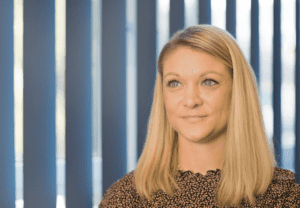Writing a Will
Important things to think about when writing your Will
A testator (the person who is the subject of the Will) must be over the age of 18 at the date of signing it and have the requisite mental capacity.
What is Mental Capacity?
This can be a complex are and case specific but it is generally accepted that a testator must:
- be of sound mind – this means they should understand what a Will is and the effect of it. For the elderly or vulnerable, supporting medical evidence will usually be needed
- have sound memory – the testator should be aware of the extent of their property being disposed of, even if they cannot recall precise valuations
- have a sound understanding – the testator should be able to comprehend and appreciate the claims to which a person making a Will ought to give effect
If the Will appears rational, then capacity is presumed. Providing it was properly drafted and executed, the validity of a Will is not affected if the testator subsequently loses capacity.
Services also offered in
Requirements for a Will
For a Will to be valid, the following conditions must be met:
- it must be in writing – although it does not necessarily have to be written in a particular style of form providing it can be clearly understood
- it must be signed by the testator or signed on behalf of the testator in their presence and on their instruction
- it must be obvious that the testator intended, by their signature, to give effect to the Will
- the testator’s signature must be made in the presence of two witnesses
There are modifications which can be applied to the rules in exceptional circumstances, for example if the Will is prepared in a language which is not their first, or if the testator is blind.
- Executors – these are the people a testator appoints to have overall responsibility for looking after your affairs and carrying out your wishes after you have passed away. Most people prefer appointing trusted family members or legal professionals. It is usually best to appoint someone younger in age as there is a greater chance they will survive you
- Beneficiaries – a testator is free to leave their wealth (known as ‘estate’) as they wish, although there can be tax consequences. Spouses, civil partners and charities have a special status as they are entitled to inherit free of inheritance tax. Certain classes of persons may be able to make a claim against an estate where they have been unfairly excluded. It is important to remember that a will cannot supersede a prior legal document so if, for example, a testator own shares in a private company, there may be a separate contract or agreement which dictates how those shares must pass on death.
- Guardians – it is recommended that a testator should inform and seek permission from those person(s) whom they wish to act as guardians of any minor children in the event of your death. Consideration should also be given as to any financial provision made for the guardians in the Will to help with care costs.
- Inheritance tax – there are many things a testator can do to help minimise or eliminate inheritance tax liability. In general terms, gifts made to a spouse, civil partner or charity can be made free of inheritance tax but it is usually best to seek expert advice on tax planning.
- Assets – it is important to distinguish between assets, including jointly owned ones. This can vary from trust assets, to foreign property to digital currency. It can be useful to prepare a list, remembering to include anything given away in the 7 years preceding the Will as they can still attract inheritance tax.
It is critical to ensure that a Will is validly executed. One of the best ways to ensure this is to include a clause confirming how the Will was executed, known as an attestation clause.
There must always be two witnesses, although the witnesses cannot be a beneficiary or their spouse or civil partner at the time of execution.
A professional Will write will help a testator prepare a valid Will which is future proofed as much as possible to allow for unintended deaths and foresee failed gifts. However, there is still no substitute for regularly reviewing a Will to ensure it meets the needs of the testator, particularly if there has been a major life event such as marriage, divorce, children or grandchildren or a significant increase in assets or wealth.
If a Will does need to be replaced, it is important any old and out of date ones are properly revoked – this means they are legally not valid or enforceable.
Below are the three most common ways a Will can be revoked:
- Destruction — for the Will to be revoked by destruction there must be an intention to revoke by the testator and an act of destruction of the original document. Destruction by mistake or someone other than the testator (or acting on their instructions) is not effective.
- Marriage or civil partnership — a Will is automatically revoked on the marriage or civil partnership of the testator, although it is possible to prepare a valid Will in contemplation of marriage. Although divorce or the dissolution of a civil partnership does not revoke a Will, if the divorced spouse or former civil partner was named in the Will, they are treated as having died on the date of the dissolution of the marriage or civil partnership.
- By later Will or codicil — a later Will normally contains an express clause which revoked earlier Wills. If a Will does not contain a revocation clause it does not expressly revoke an earlier Will but the later Will takes precedence if there are inconsistencies.
Because of the importance of Wills, what is at stake and the potential financial and tax implications, it would be rare for a Will not to be of benefit to someone. For most, it can be a very inexpensive and cost-effective way of recording their wishes and helping to reduce their tax liability and ensuring more of their wealth is passed on to loved ones.
The top three documents you should bring to your Will consultation are photographic ID by way of passport, driving license, bus pass, or blue badge. A list of names and addresses who you'd like to benefit from your Will and a breakdown of your assets.
It’s a good idea for you to have a Will, so you can include people that you wish to benefit. If you do not make a Will upon your death, your estate will be distributed in accordance with the intestacy rules. This means that you may benefit members of your family that you did not intend to benefit. Your estate may also end up paying more tax than you need to.
Most Wills can be drafted for you at a fixed cost, which can be confirmed when we know more about your personal situation. The cost of a Will would be higher if you wanted to incorporate a trust to provide for a vulnerable beneficiary or where there are other complexities to be addressed.
We will see you initially to take instructions, before drafting the will and sending it to you for approval. You will then be seen at a second meeting when you will sign the Will in the presence of two witnesses from Mullis & Peake LLP. This ensures that the legal requirements for the signing of Wills are met and that the Will is validly completed. The Will can usually be completed within four weeks, depending on your availability.
Wills and Power of Attorney Enquiry
Fill out the form and a member of our team will get in touch to discuss how we can help.
Mullis & Peake will use the information you provide in this form in accordance with our privacy policy. With your consent, we may from time to time send you general updates by email or post that we think you will find of interest.This includes notification of upcoming event and updates or alerts containing relevant legal news. You can update your preferences at any time and will be able to easily unsubscribe from anything that you do not wish to receive.
Do you need help with the following?
Mullis & Peake have specialists in Wills ready to help you. Contact us online today or call us on 01708 784000.
Alternatively, request a call back to have one of our team contact you at a time that suits.






















